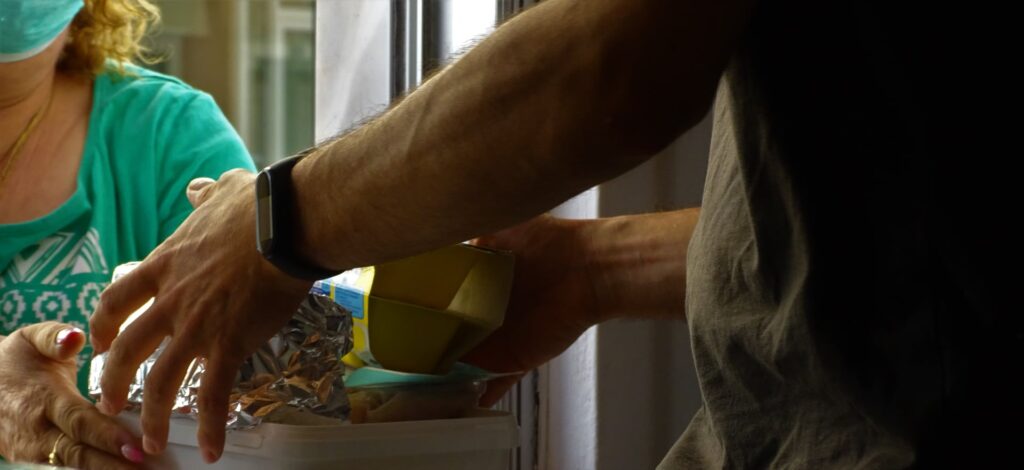A year after the start of the first mandatory confinement to combat the spread of the covid-19 pandemic, food support in the Algarve is still vital so that many families can access daily meals.
The region's economic dependence on the tourism sector and restrictions on international travel have forced many companies to close their doors, resort to 'lay-off' or lay off workers, increasing unemployment.
Ana (fictitious name) worked at the airport in Faro, but was dismissed in August and no longer earns the “just over a thousand euros” that she received per month. At the age of 40, with two children and bills to pay, she was forced to "live with family members" and ask for food support.
“It was complicated. We used to make meals with sausages and eggs, more basic things, because the money doesn't stretch», he reveals, while waiting at the door of the Refood institution, in Faro, to pick up the goods he takes home “twice a week”.
Unemployment also forced her to withdraw her daughter from the nursery to “save 250 euros”, but, despite her current situation, she was surprised by a letter from Social Security in December, reframing her children “from grade A to B », which implies a «reduction in the family allowance» and in the «school support» he received.
Queues at the door of Refood, in Faro, became a constant in almost every afternoon, with beneficiaries waiting their turn to receive food or meals already prepared in a space long undersized for their needs.
“A year later, we are worse off than before. We support 373 people and requests for help keep coming, but we have managed to respond with the help of the community», the Refood coordinator in Lusa tells Lusa. Faro, Paula Matthias.
What has been valid for them is the direct donation, the volunteers who “cook at home to donate”, the restaurants that “open their doors to cook once a week” and the “greater awareness” in the delivery of surpluses by hypermarkets.
Refood opened more «120 vacancies in January» to respond to the increase in requests, but «more than half have already been filled», he says. And the predictions for the future are not the best.
“We already have alternative plans. We are preparing for the worst, because it seems to us that, unfortunately, this is the beginning of what is to come. We are not yet with that economic crisis that we have heard about, but we are entering it», warns the person in charge.
Júlia (not her real name) occupied one of the new vacancies, after having been forced to ask for support when the pandemic and a health problem prevented her from continuing to work the "usual overtime" that complemented her income.
“I'm still working, but it's not enough for expenses. From here I take food made and to be cooked twice a week. I thank God for having appeared in my life», he stresses.
The 19-year-old son "is studying to be an electrician" and the job he had in a pizzeria allowed him to "help around the house", but with the new confinement "he was dismissed" and was no longer able to contribute.
Just a year ago, the Movement to Support the AIDS Problem (MAPS), in Faro, had to expand food support that previously only covered the homeless: “we are receiving more and more requests, mainly from families with children. People can't make ends meet, they can't feed themselves», reveals the vice president.
Elsa Cardoso does not foresee better times, even with the distrust, pointing out the «precedents» of several months in which «debts» were contracted, which will not be recovered «for one or two months of work».
Bia (not her real name) is 33 years old, has three children and her confinement has left her without a job, putting her husband on 'lay-off'. With her income low and her bills piling up, she had to turn to MAPS, which she says is "huge help."
“My husband receives the minimum wage and we have the house rent to pay and three children to feed. This help has been essential», he says.
Before the pandemic, they managed to have a “stable” life, “without luxuries”, but which allowed them to “pay the bills”. At this moment, only thanks to that institution is it possible for them to have “food on the table”.
Maria (fictitious name) came from Brazil with her family three years ago and now lives a similar reality, with the pandemic throwing her into unemployment and forcing her husband to have to look for work in Belgium. With two children – one aged four and the other aged 15 –, she had no choice but to ask for help when her son began to “lack milk”.
Without family support, her biggest fear is getting sick: “I can't get sick. If I stay, what will happen to my children? Who are they going to turn to? My husband lives in another country, so we go to the bottom», she sighs.
To the social services of the Chamber of Faro many of these orders arrive, which began to increase a year ago with the start of the first confinement. However, there is still a lot of shame in asking for help, reports the head of the division.
“There are people who take a long time to ask for help and only come as a last resort. They don't have to be ashamed, today they need it, tomorrow they will need others, or us. It is important that they spread the word and if they know of someone else, that they refer them to us», urges Ana Sofia Pina.



















Comments